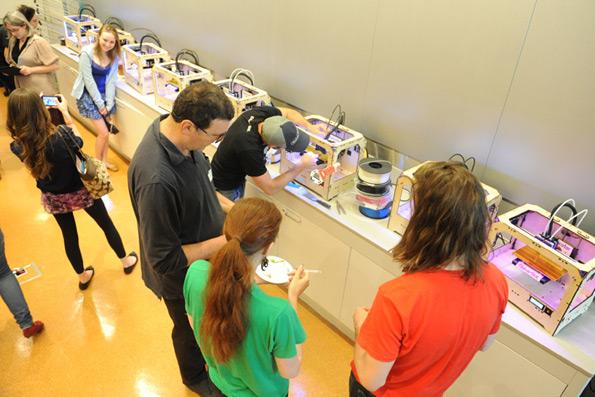
5 Ways The Met is Using Technology
April 11, 2014
By Sree Sreenivasan, Chief Digital Officer, The Metropolitan Museum of Art
Most people don’t associate museums with technology beyond audio guides – which were cutting-edge visitor experiences at one time – but that’s quickly changing. The Digital Engagement Initiative at Bloomberg Philanthropies is supporting cultural institutions like the Met Museum to use all kinds of digital, mobile and social media to connect with our audiences and enhance their experiences.
At the Met, I have the privilege of working with a wonderful team of technologists and art experts on ways we can increase access to our collection for everyone including those who visit our galleries in New York to online art enthusiasts around the world. It’s a revolutionary moment for us as we explore new ways to engage our audience through technology – even the audio guide has evolved into a multimedia device – and with the advent of smartphones, we are ramping up our efforts to transform how visitors learn about and interact with art through a mobile experience.
Here are five examples – among many others – of technology in action at the Met:
Read more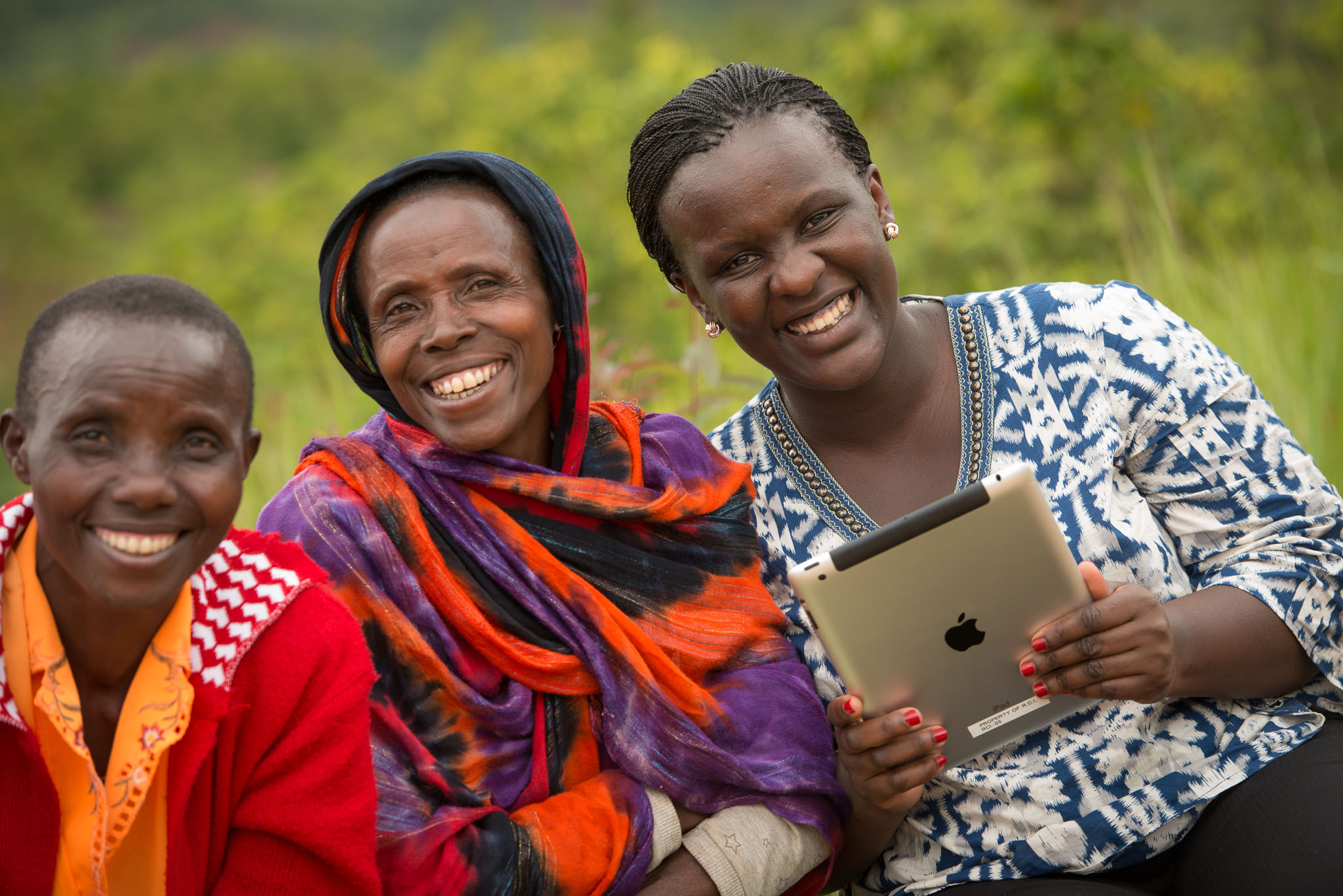
Q&A with Esther Mukundane of Sustainable Harvest Rwanda: Creating opportunity for female coffee farmers in Rwanda
March 5, 2014
Sustainable Harvest is the pioneer of the Relationship Coffee Model, a system of sourcing that stresses quality, transparency, and sustainability throughout the supply chain. Through a three-year grant from Bloomberg Philanthropies, Sustainable Harvest recently launched a nonprofit entity, the Relationship Coffee Institute, which will create economic opportunities for women in the Rwandan coffee trade.
As part of the launch of the Relationship Coffee Institute, Sustainable Harvest held a regional version of its Let’s Talk Coffee event. Bringing together 80 female coffee farmers from rural areas, Let’s Talk Coffee Rwanda offered trainings both on the entire coffee value chain and on mushroom and honey production. The event also brought together roasters, retailers, NGOs, and senior government officials to discuss challenges and strengthen opportunities for smallholder farmers to make connections in the value chain.
In this Q&A, Bloomberg Philanthropies asked Esther Mukundane, country director of Sustainable Harvest Rwanda, about her experience at Let’s Talk Coffee, what surprised her the most about the event, and how everyone can support the initiative:
Read more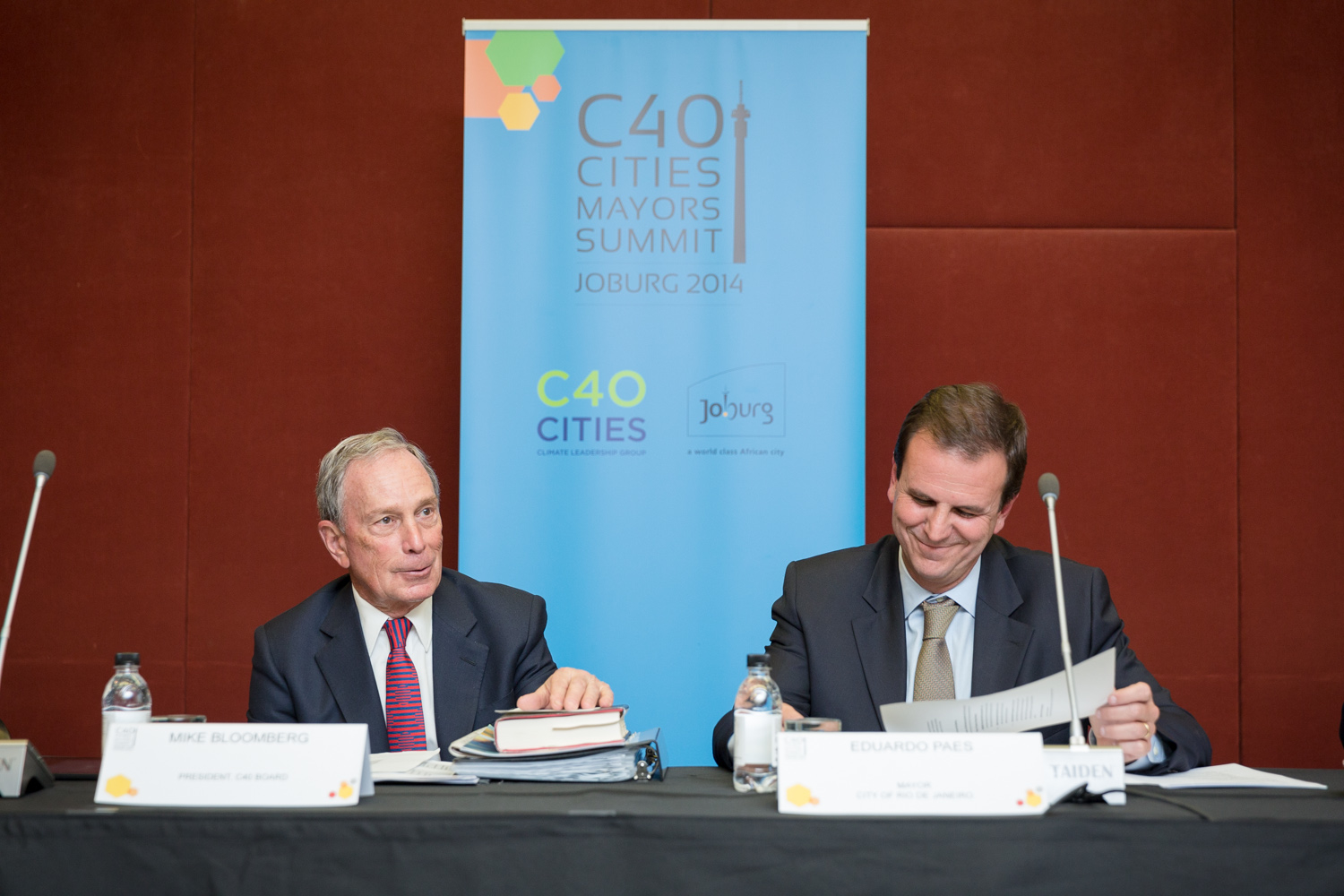
Mike Bloomberg’s Annual Letter on Philanthropy
February 26, 2014
This year begins a new stage for Bloomberg Philanthropies – and for me personally. Over the past twenty years, I have grown increasingly active in philanthropy – and increasingly convinced of its power to save lives and change the world for the better. When I left City Hall on December 31, 2013, after having had the honor of serving New Yorkers for 12 years, I began having more time to spend on national and global issues. The same is true for Patti Harris, who served as my First Deputy Mayor and is also CEO of Bloomberg Philanthropies. Now, both of us are excited by the opportunity to substantially expand the work of Bloomberg Philanthropies and our involvement in it.
Thanks to the hard work of our dedicated staff and our diverse and driven partners, Bloomberg Philanthropies has already established itself as a force for policy innovation and global collaboration. In fact, this month we were named the world’s second most innovative organization, behind only Google, by Fast Company. That honor is a reflection of groundbreaking work that is happening in each of our different program areas.
Read moreNew U.S. Surgeon General’s Report on Tobacco’s Harmful Effects Shows that Progress Is Possible, but More Work Remains
January 24, 2014
By Bloomberg Philanthropies Public Health Team
Fifty years ago the U.S. Surgeon General released a landmark report that linked smoking to cancer and fundamentally changed public attitudes around tobacco. Since then, considerable progress has been made in the United States – smoking rates have been cut in half since the 1964 report was released. Strong policies have banned smoking from many public spaces and prohibit tobacco advertising in many media outlets. And taxes on cigarettes have been increased federally by many states and localities.
To commemorate the report’s anniversary, the U.S. Surgeon General released an updated report on the tobacco epidemic. The new study notes declines in U.S. smoking prevalence, and that’s good news, but the report also indicates that much more work is still needed to end the deadly tobacco epidemic.
Read moreA Record Setting Year for Clean Energy and Decline of U.S. Reliance on Coal
December 19, 2013
Reducing America’s reliance on energy from coal and moving towards cleaner, alternative energy sources is central to the Bloomberg Philanthropies’ environmental work. By partnering with the Sierra Club to launch the Beyond Coal campaign, our support is helping to move the U.S. off of coal by 2020. Today, the Sierra Club today announced the following major news:
2013 was a momentous year for clean energy, as solar and wind generation hit record highs, prices plummeted, and wind and solar took on increased market share from coal. Installation of renewable energy capacity outpaced coal, oil, and nuclear growth combined. The coal industry saw numerous setbacks, and nationwide thirty percent of existing coal plants in the United States are now announced to retire — 158 plants, representing over 20% of the nation’s coal power. Not a single coal plant has broken ground over the past three years.
Read more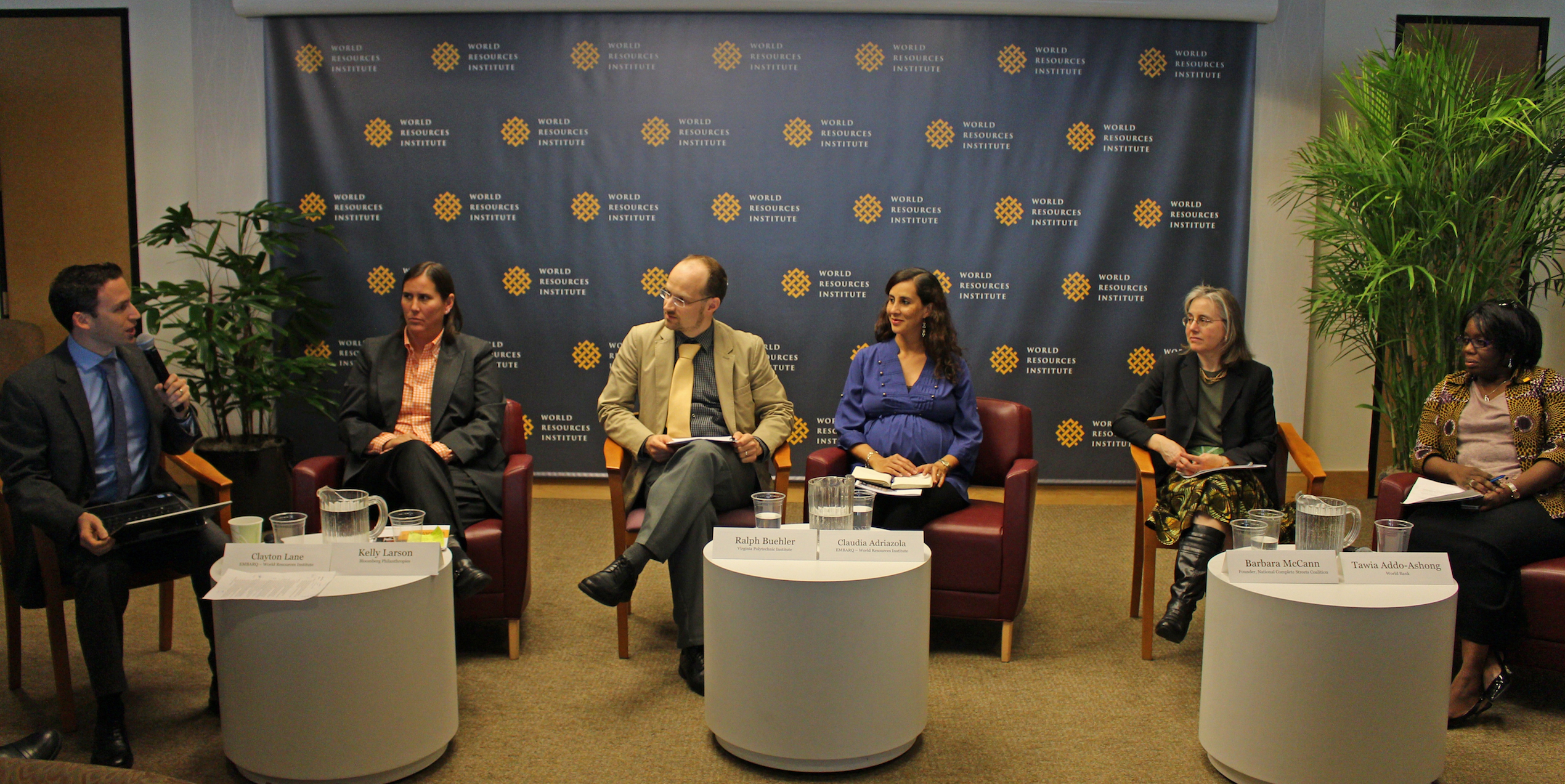
Sustainable Transportation Benefits Both Public Health and the Environment
December 13, 2013
By the Bloomberg Philanthropies Public Health Team
Sustainable urban transportation is one of the primary focus areas for the Bloomberg Philanthropies Global Road Safety Program. Getting people out of private vehicles and into public transportation is important for reducing the injuries, deaths and diseases associated with traffic crashes, carbon emissions, and physical inactivity. To promote safer urban transport, Bloomberg Philanthropies partners with EMBARQ, a top sustainable urban transportation organization and a program of the World Resources Institute. EMBARQ advises both government officials and the private sector on transportation and urban development. Bloomberg Philanthropies supports their work in Brazil, India, Mexico, and Turkey, helping to ensure that sustainable transport initiatives, such as citywide bike lanes and Bus Rapid Transit systems, are as safe as possible.
Read moreColorado Proposal Would Lead the Nation with New Clean Air Rules
December 12, 2013
By Mark Brownstein, Associate Vice President & Chief Counsel of Environmental Defense Fund’s US Climate and Energy Program
Colorado is in the midst of an oil and gas boom brought about by hydraulic fracturing and horizontal drilling. Proponents of this new development cite economic and environmental benefits, and there’s certainly something to the argument that new natural gas is helping to drive dirty old coal out of Colorado’s energy mix – and the nation’s.
But whatever the benefits may be, there is another side to the story. There is no escaping the fact that oil and gas development is a heavy industrial activity that poses significant risks to public health and the environment. While much can be done by both government and producers to minimize these risks, there are too many communities where intensive oil and gas drilling is taking place where citizens feel like nothing is being done and no one cares. This is precisely why the Environmental Defense Fund (EDF), with support from funders such as Bloomberg Philanthropies, is fighting for stricter rules and tougher enforcement.
Read moreMike Bloomberg’s Groundbreaking Use of Public-Private Partnerships
November 21, 2013
During the Bloomberg Administration, New York City expanded the scope and purpose of private sector collaborations, and improved their effectiveness and management structure, according to a report released today by Freedman Consulting, LLC and Bloomberg Philanthropies at the inaugural Robin Hood Investors Conference in New York City. A dozen non-profit organizations working directly with New York City agencies have raised more than $1.4 billion in philanthropic contributions collectively since 2002.
Read more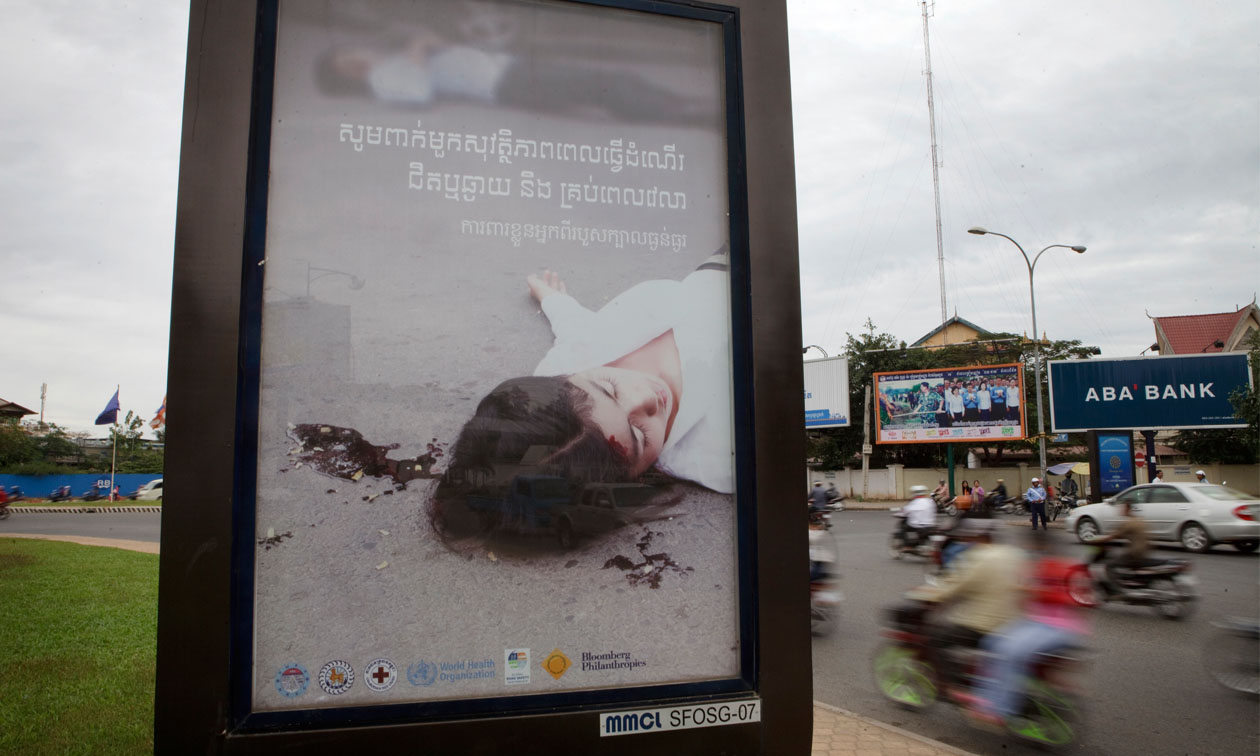
Hard-Hitting Road Safety Campaigns Help Save Lives
November 14, 2013
By Elena Altieri, Communications Officer, World Health Organization Department of Violence and Injury Prevention and Disability
In the Indian state of Andhra Pradesh, motorists cited protection from rain, dust, and even being seen transporting a woman other than one’s wife as benefits of wearing a helmet when driving their motorcycle. A few mentioned escaping fines. Sadly, no one mentioned safety. The fact is: wearing a helmet can decrease the risk of injury by 70% and death by 40%.
One pillar of the Bloomberg Philanthropies Global Road Safety Program is the development of evidence-based mass media campaigns designed to change attitudes and behavior towards road safety. Developed after extensive research and testing with target audiences, the Bloomberg Philanthropies Global Road Safety Program has produced and implemented 19 campaigns, totaling 33 television commercials and 17 radio spots, across 10 countries. In Brazil, Cambodia and Mexico, these hard-hitting campaigns were the first ever public campaigns to show realistic and graphic consequences, including injury and death.
Read more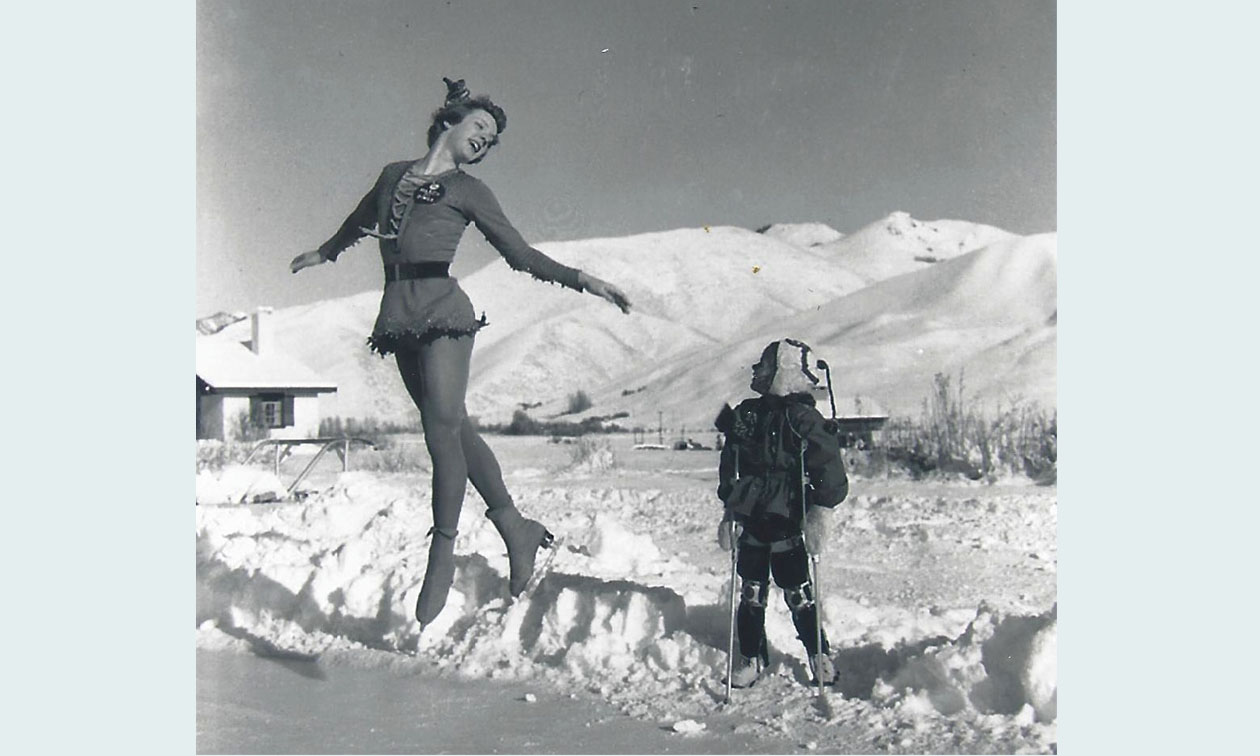
World Polio Day
October 24, 2013
By Tenley E. Albright, MD, Director of MIT Collaborative Initiatives
There is much to celebrate today in the global fight against polio. But our job is not yet complete.
In the 1950s, 33,000 or more Americans were crippled or killed by polio every year. The last known case in the U.S. was in 1979. When I had polio as a child, there was no cure, no treatment – no one even knew what caused it or how it spread – and certainly there were no vaccines.
Read more